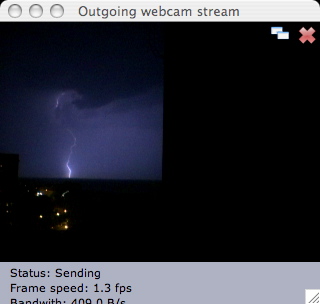It occurs to me that “An INFP’s inner life” might seem to be an ironic title for my journal. According to MBTI, I am an INFP, but aside from raw recountings of select dreams (I don’t post the juicy ones), there is not much here about my inner workings. You could learn something about me that’s somewhat beyond the surface from reading the dreams, the social commentaries, and the book reviews. You could see the type of behaviors and situations that annoy and concern me. If you are a determined dream analyst, you might even hit up on some relevant symbols in my dreams.
You could, but who would want to?
I’ve been told that I’m hard to get to know enough times that I believe it must be true, yet I do not understand how or in what way. I feel painfully open and appear painfully closed. It is true I do not discuss a lot of my personal feelings publicly — but do most people? Many personal journals online do tell day-to-day life stories with feelings described, but to me they seem to scratch only the surface. If a friend or family member is late or makes a thoughtless comment, the writer may express impatience, anger, or frustration, especially if it is already a troubled relationship. They seem to be reasonable responses that most of us in similar circumstances would share. The same is true for the rest of the gamut of feelings. Perhaps even strangers believe that they have come to know these journal keepers because they recognize the situations and the reactions. With me, apparently, whether it’s in my offline or online life, there is nothing like that on which to latch.
Last night a friend annoyed me. I thought his behavior was, albeit unintentionally, thoughtless and inconsiderate, just short of rude. At the same time, my reaction to it — complaining in a somewhat passive-aggressive way, then becoming cold, silent, and distant — was equally disturbing and off-putting. I knew it even as I was behaving that way, but could not seem to stop myself. I despise myself when I am like that — when my emotional mind shows its reaction even while my rational mind knows it is an unwarranted waste of energy and insignificant in the scheme of things, whether that “scheme of things” is my own confined personal world or the greater world in which global warming, war, genocide, famine, etc., etc., seem both unstoppable and unthinkable.
Within a short time, my rational mind does win, and my emotional one feels sorry for its self-centeredness, impatience, and lack of control. And then it seems to draw the same conclusion it must have drawn before — that the best way to avoid feeling petty, out of control, and emotional is to minimize human contact.
This isn’t easy to do. I crave meaningful human contact, partly because for me it is so difficult to find and therefore rare. When I do find it, I share too much, I think; I probably scare most people off, even as they tell me I’m hard to get to know. I am afraid of that kind of intimacy because it is both elusive and fragile. I try too hard. I become half a person — the half that is understanding, empathic, and noncontroversial. The half that is bland and boring and flat. The half that is petty, petulant, passionate, and difficult stays hidden. Once the hope of intimacy is lost, however, then too much of that half is revealed. Neither is a whole person, neither is an interesting one, and, I hope, neither is me. Neither person is someone I would want to know.
When I was depressed, I saw a social worker who was convinced that I have a “rich inner life.” So was Wayne Booth in the brief time during which I took his classes. I do not live it, however. I don’t know how to.
The social worker also told me I have locked away my emotions behind a door, in a basement. I suppose it is so that they do not trouble me. But once in a while something will happen that will make them, at least the stronger ones, maybe love-hate-anger-fear, escape or try to. I imagine that I do one of two things — let the door burst open, let the flood out, succumb to an overwhelming flood of anxiety and depression, with all the attendant physical and emotional symptoms, fighting to suppress their expression. Or I expend all my energy leaning on the door with a tightlipped smile to keep them where they belong, where I may not be able to manage them, but where no one else need be aware of them.
I imagine that this basement resembles my rooms and my closets — full of old things piled up haphazardly, things with which I cannot bring myself to part. I do not always use them but I may need them someday, a day that never comes. Meanwhile, they oppress me; they weigh me down.
I can neither keep them in nor let them out.
Maybe that is the way I am meant to be.
There. Not so difficult to understand after all.


